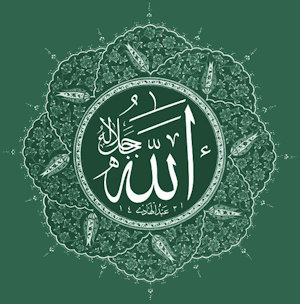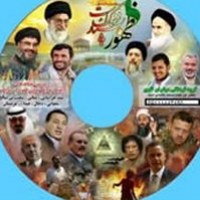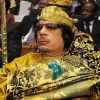![]()
Sunday, June 7, 2015 | By R. Joseph Hoffmann
The pathology of the religious movement called Islamic State (ISIS) is a flesh-wasting disease that erupts out of the attempts of conservative Islam to correct its recent record of failure.
Its iconic moment, September 11, 2001, is now more than a decade past. The leaders of al-Qaeda are aging, disorganized and easily upstaged by more robust and glamorous moments — beheadings, cultural brigandage, mass executions, rape, and Blitzkrieg raids on unsuspecting towns and villages. The Taliban have had a run of bad luck; franchise groups like Boko Haram or Al Shabab perform piratically, on the fringe, and at a distance. All of them are fueled by ignorance, demonic forms of enthusiasm, and a perverse idealism that appeals, strangely, to a world where the more ritualized forms of dualistic warfare have become unfashionable or relegated to science fiction. In a world that has become morally lazy and predictable, an evil cause that can exploit unpredictability easily wins.
The form of Islamism we are witnessing is dangerous, polymorphic and brimming with venom. But it is also a tail-eating serpent that will sooner or later ensure its own destruction. While the ancient trumpets of cosmic warfare are largely silent in the modern era, except, perhaps, in the anti-intellectual gutters of America’s Bible Belt and its suburb, Washington, DC., it is thriving in the Muslim world: the trumpet will sound, the martyrs and the true believers will be living it up in the casinos and condos of Paradise, and unbelievers will be cast into a lake of bubbling fire, Jahannam, with no chance of appeal. Choice is never more clear than the choice you are given in radical Islam.
The international media, with its usual preference for the dopishly simple, works on a scale of “fundamentalisms” rating them, like hurricanes, from moderate to ferocious. Thus, al-Qaeda is very bad, but ISIS is horrible; the Taliban are medieval, but Boko Haram is primal. There may some truth to seeing things this way, but the common use of the word “fundamentalism” to describe what is going on in radical Islam is not a good way to describe Islamism in general and this form of the disease in particular.
Islamic extremism is not a movement designed to wrest the Qur’an from liberal exegesis or the chains of dogma or speculative theology. The spectrum of Islamic doctrine runs from assured, self-satisfied and quiescent orthodoxy to aggressive, expansionist, violent ultra-orthodoxy. Moderation as in (“moderate Islam”) is not a virtue here; it is not even an option. Moderation is cowardice, capitulation, and the opposite of the complete spiritual and intellectual surrender the leaders of the movement believe Allah demands of his followers. The spectrum of opinion that exists in Judaism or Christianity — reform to Chasidic, Roman Catholic to protestant, or mainline protestant to Pentecostal-evangelical, has no parallel in Islamic practice or theology.
ISIS represents that form of ultra-orthodoxy that eschews nuance, sect, variations of opinion based on diligent reading (ijtihad) and demands, in the strict sense, submission (استسلاما) to the only principles it regards as fully Islamic. Its model for enforcing this regime is not the bookish culture that grew quickly out of Arabia and Persia after the eighth century but the roughly hundred-year period of bloody succession wars and expansion following the Prophet’s death in 632. The warriors of ISIS are not fighting a ground battle for ground alone; they are fighting the forces of evil in order to restore the dar-al-Islam to an imagined purity that existed in a faraway past — a once-upon-a-time at the Kaaba. It is at once exotic and nightmarish, romantic and repulsive, because it extends back to the time when people believed that blood could consecrate sand.
In a couple of pieces, notably “Just War and Jihad: Positioning the Question of Religious Violence,” I’ve tried to make the case that two things are wrong in Majorem islamica mundi that lead specifically to Islamic radicalism: A contempt for secular learning, especially of the nonscientific kind associated in the West with the liberal arts, and the Islamic doctrine of finality.
Contempt for Secular Learning
The problem least commented on by political analysts of the ISIS phenomenon is the almost complete absence of a developed and competitive educational system in the Islamic world. Islam at its organic, doctrinal center is rotting from the inside out. Not only does it lack the centralized authority that one finds in the world’s oldest government and bureaucracy, the Roman Catholic Curia, or, as in Judaism, a highly educated rabbinate, trained in liberal arts and critical thinking besides theology and biblical studies, but it also lacks a single ranked center of educational excellence or a seminary that would do justice to the study of Islamic history, theology and religion. This despite the fact that any city in the Muslim world will have dozens of madrasahs and colleges offering courses and degrees in the Islamic “sciences.”
Hundreds of thousands of Muslim students would not consider attending a university with a specific Islamic identity in their home countries, and the home countries for their part are in competition to create various American-style college programs (largely staffed by locals with a sprinkling of international instructors) in places as far flung as Sharjah, Afghanistan and northern Iraq. The flight of intelligence from the Muslim world is simply the most critical example of the global price ISIS and its cousins is inflicting on the Middle East.
To the extent “average” Muslims look back to better intellectual times, they must look back to the tenth century for an intellectual renaissance. But the pious (not only the radicals) regard their Golden Age (a western construct of the 19th century, never an Islamic phrase) as a period of laxity and heresy and subscribe instead to the “repository theory of knowledge”: On this view, all knowledge is either expressed, implied, or hidden in the Qur’an and merely discovered to be true through speculative and experimental inquiry.
This has an interesting double effect: on the one hand, it inhibits serious inquiry (If the truth — all truth — is in the sacred book, its experimental discovery is not a matter or urgency or effort but of divine will). On the other, it protects Islam from some of the absurdities of Christian fundamentalism, which sees the truth revealed in the Bible as supervenient and static and opposed to what conflicts with it in science — notably evolution or “creation.”
But the “repository theory” is a twentieth century strategy in Islamic apologetics. The free-thinking scholars of the golden age were at pains (just like the Christian monks in the West) to reconcile their speculative work with religious principles and texts. They did this in one of two ways, either by pronouncing philosophy interesting but useless in arriving at the higher order truths of religion (al-Ghazali) or by attempting to reconcile philosophy and religion as coordinate, non-contradictory ways to truth — roughly what Stephen Jay Gould termed “non-overlapping magisteria” (Ibn Rushd). The astronomers and surgeons of the Abbasid age were the first to make the separation of faith and knowledge axiomatic for scientific work. This of course led to conflict between the ulama, and the scholars, at a time when to be a scholar was significantly different from being a religious authority. “The ink of a scholar is more holy than the blood of a martyr,” a (false) hadith considered so dangerous it had a fatwah attached to its utterance, was a popular aphorism during the period of the Abbasids. During the war between the religious elite and the philosophers of Islam, the eleventh century writer Omar Khayyam — more famous in his time as a scholar than a poet — had this to say:
Allah, perchance, the secret word might spell;
If Allah be, He keeps His secret well;
What He hath hidden, who shall hope to find?
Shall God His secret to a maggot tell?
The Koran! well, come put me to the test–
Lovely old book in hideous error drest–
Believe me, I can quote the Koran too,
The unbeliever knows his Koran best.
An Isis-like movement, the Mongol invasions of the thirteenth century, did to Baghdad and parts of Iran (Khayyam was Persian) what the sack of Rome did to the Empire, and by the fifteenth century learning was also being snuffed out in Spain with the defeat of the Islamic kingdom of al-Andalus. While it is a common and execrable myth that Crusader culture was to blame for the disintegration of Muslim intellectual life, that suggestion is almost completely false and designed to disguise the fact that it was islamicized tribes under Chingiz Khan’s successors that demanded piety rather than intellectual attainment as the litmus tests for being Muslim. The European knights whose stay in the Middle East was short, unhappy, and focused on the Mediterranean coast had almost nothing to do with it, colonialism even less.
Yet even in the period immediately following the Crusades, the eastern Invasions, and well into the Ottoman period Islam, as a faith, was not as programmatically hostile to humanistic studies as it is now, a phenomenon disguised but not contradicted by the commercial temples of modernity in Dubai and Abu Dabi. It is one of the ironies of radical Islamic existence that the technologies that spring from the culture it despises — trains, planes, cars, communication technology, visual media, advances in medical sciences — are greedily exploited, while the prerequisite western values of curiosity, free inquiry, and skepticism are discouraged or considered forbidden as specifically western and decadent.
This rationalized ambivalence has created a hole at the center of Islamic existence, felt chiefly among second and third generation Muslims living outside the traditional Islamic homelands in places like Manchester, Los Angeles or Paris.
Unsurprisingly the faith that arguably produced some of the first university like structures with al-Qarawiyyin and Al-Azhar in the tenth century, later on produced no Padua or Sorbonne, no Oxford or Cambridge, no Harvard or Georgetown, all of which were established by Christian monks or protestant divines. The effect of this is that in the West religion and education grew up in tandem if not always peaceably; the development of learning was a reciprocal process in which the unfettered “advancement of learning” (as Francis Bacon called it) was held up as the ideal. In the West, the Renaissance followed the dark ages, and the Reformation of religion closely followed (and was driven by) the Renaissance. In the Islamic world, the dark ages followed its renaissance making a reformation of religion all but impossible.
Finality and the Chasm Theory of History
The second and more formidable challenge, however, is the Islamic doctrine of perfection and “finality” (غائية) which is associated especially with its radical expression in Saudi-based Sunnism.
Scott Lucas in “The Arts of Hadith Compilation and Criticism: A Study of the Emergence of Sunnism in the Ninth Century” (University of Chicago, 2002) asserts that “most Muslim and non-Muslim scholars consider Sunnism to be the normative manifestation of Islam.” In effect, this means that many scholars as well as most Muslims regard Sunnism as the orthodox form of the religion — not a sect, but the exclusive form of the faith as practiced by the overwhelming majority of Muslims for the best part of its history.
The movement usually blamed for the revivalist fervor that has spawned the greatest radicalism in twentieth and early twenty first century Islam is Wahhabism, named after the eighteenth century preacher and scholar, Muhammad ibn Abd al-Wahhab (1703–1792) of Najd, though it has been superseded by Salafism as the fastest-growing Islamic movement in the world. Both trends, varying only in zealotry for an imagined, rigidly observant past, are anti-intellectual and condemn the use of speculative philosophy (kalam) in theology on the grounds it did not exist during the life of the prophet. Any alternative view of history may be regarded as heretical, not only Shiism but reformist and “moderating” trends within Sunnism as well.
The Salafis consist of overlapping groups of purists, activists and jihadists, but their basic goal is the establishment of sharia as the foundation of society: “It’s very simple,” according to Mohammed Abdel-Rahman, “We want sharia. Sharia in economy, in politics, in judiciary, in our borders and our foreign relations.” “Sharia” as used by the Salafist experts can mean a number of things but in the broad sense it entails a rejection of western values, rejects the accommodation of Islam to secular culture and modernity, and seeks a restoration of what their adepts perceive to be the ordinances, laws and punishments for apostasy practiced in the early umma. There is no interest in the history of sharia or of the thousands of cherry-picked quranic verses and hadith that comprise their catechism — only the fact that it is believed to be true. Radical Islam is text without context.
But the thesis that Sunnism or any of its revivalist offshoots is an orthodox “form” of Islam breaks under examination. The Sunnism that produced al-Wahhab in the 18th century and developed during the colonial period as a retrograde form of the religion is not the Sunnism that was trampled under by the Mongols in 1268 with the destruction of the Bayt al-Hikma (بيت الحكمة), the House of Wisdom. The history of the intellectual development of Islam from the time of Muhammad’s youngest uncle, Abbas ibn Abd al-Muttalib, founder of the Abbasid dynasty, is virtually unknown to these later sunnis and purists, and to the extent they know it, they regard it as shameful.
Rejection of all that is not considered normative or mubah (permissible) is not just a theory among ISIS and its auxiliary jihadis; it is a program that requires finishing what many radicals regard as an uncompleted purification of the world by the Prophet and his companions, the Mubajirun. Their symbolic moment is the unquranic story of the cleansing of the Kaaba (the actual account comes in book 59 of Sahih Al-Bukhari) and several pivotal events before his death: the Battle of the Ditch, the massacre of the Qurayzah Jewish tribes, and the establishment of a kind of “proto-caliphate” in the three years before his death. For them, Islam is contestation and strife, not peace and tranquility. It does not build or need universities. It needs warriors.
The Finality Solution
In order to purify their history and justify their dominance of the largely sunni-areas they have conquered in Iran and Syria, the jihadists reject any suggestion that Islam has any obligation to follow practices that have gone soft over the centuries since the time of the Prophet: there is no compulsion to respect variant practices among believers and consequently no reason to respect unbelievers.
Ibrahim is a prophet because he believed in God and was a true Muslim. Jesus (Isa) is a prophet not because he is significant to Christians but because he is accorded the status in Islam. The same is true of the religious figures of the past, from Ibrahim onward. Christians and Jews are not believers but infidels who cannot be trusted and who violated the trust of Muhammad and rejected his prophethood: “O you who believe! do not take the Jews and the Christians for friends; they are friends of each other; and whoever amongst you takes them for a friend, then surely he is one of them; surely Allah does not guide the unjust people.” (Qur’an 5:51).
Despite a certain ambivalence towards other religions in Islam generally, the wholesale convert-or-kill practices that have astonished the world are rooted in Islamic State’s interpretation of a wealth of verses (Q3.28, 3.118, 9.23., 53.29, 3.85. 7.44) that it regards as normative. Burning infidels in cages is halal. The slaughter of Yazidis in the hundreds and other religious minorities is not only permissible but holy. The physical depredation of archaeological sites in Nimrud, or the Assyrian capital of Khorsabad, the Mosul Museum, the tomb of Yunas, Hatra, the great Mosque at Basra — acts of piety and in complete harmony with the will of God as mediated through the Prophet. As Cornell archaeologist Sturt Manning has said, with great understatement, “The terror group is destroying the evidence of the great history of Iraq; it has to, as this history attests to a rich alternative to its barbaric nihilism.” Simply put, ISIS believes that its violent iconoclasm is a religious act. Being killed in the doing of it is not punishment but martyrdom.
Islamic extremism rejects not only the idols of the pagans and other religions but history in general: history as really lived, as the unfolding of a story, as the confluence of beliefs, as a diversification of ideas, including ideas about God and humanity, has no meaning here. History, since it is not providential, works from analogy, discovers unoriginality more than originality, and seeks causes for outcomes, is a lie that must be untold by being buried and its proponents silenced. The ignorant contempt for all history by the extremists — what Manning sees as their “nihilism” — has left an enormous hole in the center of Islam: it is the absence of a critical tradition that would permit Islam to grow and develop organically while maintaining its core belief in the oneness of God and the status of the Prophet. It is not the satanic West that is obstructing this process. It is the failure of Islam as a whole to provide intellectual alternatives to the farcical but deadly cosmic warfare the jihadists think they are fighting, on their own terms.
The isolated grunts, groans, commiserations, and apologies offered (not always wholeheartedly) by imams and assorted non-authoritative “supreme Islamic councils” after each new outrage, each new spasm, are hardly a cure for what is deeply and consistently wrong in Islam.
R. Joseph Hoffmann graduated from Harvard Divinity School and the University of Oxford (Ancient Near Eastern Studies). Hoffmann was tutor in Greek at Keble College and Senior Scholar at St Cross College, Oxford, and Wissenschaftlicher Assistent in Patristics and Classical Studies at the University of Heidelberg. He taught at universities in the United States, Britain and Lebanon. He has held visiting positions at universities in Africa, the Middle East, the Pacific and South Asia. He is now Professor of Liberal Arts at the American University of Central Asia. Beyond academe, he is well known for his advocacy of the humanist tradition. In his recent work, Hoffmann has turned increasingly to the work of ”humanist restoration”. His most recent books include an edited volume entitled Just War and Jihad: Violence in Judaism, Christianity and Islam (2006) and Sources of the Jesus Tradition (2010.) His study of the concept of the right to life in early Christianity, Faith and Foeticide, will be published in 2015, along with another in his series of translations of the classical philosophical critiques of the Christian movement: Christianity: The Minor Critics. He blogs at The New Oxonian. Read his full biography here. For all the exclusive blog entries by R. Joseph Hoffmann, go here.



 RSS
RSS











Latest Comments
Hello Mike, Thank you for your positive feedback to the article. I felt there wasn’t too much critical analysis of ...
Thanks for this considered and well constructed article. A follow up article on the manner in which the editorial contro...
THE CLUELESSNESS OF CLAIMING THAT OBAMA'S MIDDLE EAST POLICIES WERE A FAILURE CANNOT BE FURTHER FROM THE TRUTH, WHAT THE...
As long as Obama is the president of the usa do not trust the us government......
Thank you for an good read....